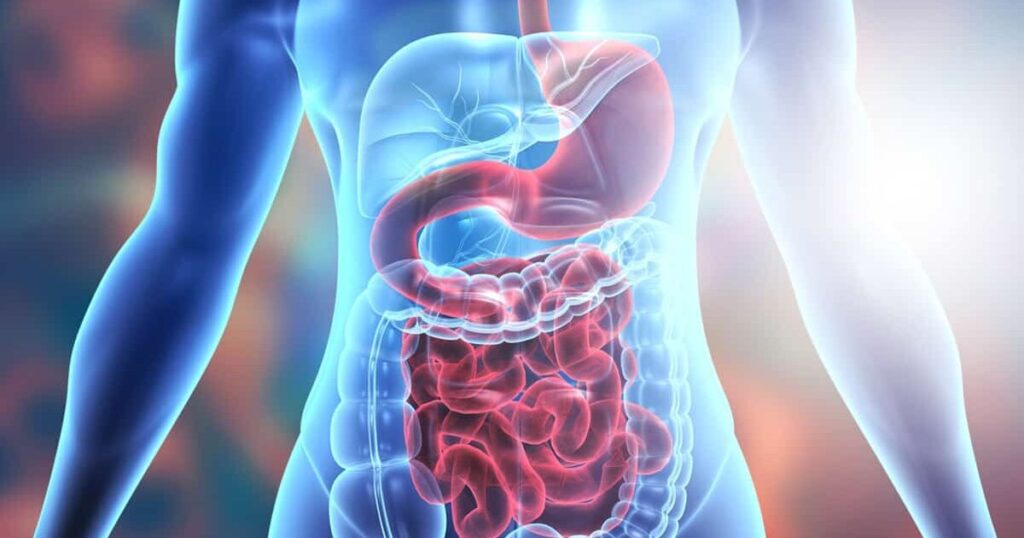Are you listening to what your gut is trying to tell you? Our digestive system plays a crucial role in maintaining overall health and well-being. From breaking down food to absorbing essential nutrients, this intricate system keeps our bodies running smoothly. But what happens when it becomes compromised? Let’s explore the signs that indicate your digestive system might need some extra TLC.
The Importance of a Healthy Digestive System
A healthy digestive system is crucial for overall well-being and optimal functioning of the body. It plays a vital role in breaking down food into nutrients that our bodies can absorb and utilize. Without proper digestion, our bodies cannot obtain essential vitamins, minerals, and energy needed to thrive.
When your digestive system is compromised, it can lead to various health issues such as nutrient deficiencies, inflammation, and even autoimmune conditions. Maintaining a healthy gut flora is key in supporting your immune system and reducing the risk of gastrointestinal disorders.
Eating a balanced diet rich in fiber, probiotics, and prebiotics is fundamental in promoting good digestive health. Additionally, staying hydrated, managing stress levels, and getting regular exercise all contribute to a happy gut.
Remember, a healthy digestive system not only benefits your physical health but also impacts your mental well-being. So prioritize taking care of your gut for overall wellness!
Signs of a Compromised Digestive System
The digestive system is a complex network of organs working together to break down food and absorb nutrients. When this system is compromised, it can lead to various signs that indicate underlying issues.
- Abdominal pain and discomfort are common indicators of a troubled digestive system. If you experience persistent or severe pain in your stomach area, it could be a red flag that something isn’t right internally.
- Changes in bowel movements, such as diarrhea, constipation, or irregularity, may also point to digestive disturbances. Your body uses these signals to communicate when there’s an imbalance in your gut health.
- Unexplained weight loss or gain without changes in diet or exercise habits could be linked to a compromised digestive system affecting nutrient absorption. Pay attention to fluctuations in your weight that cannot be explained by external factors.
- Bloating and gas can result from poor digestion and imbalanced gut bacteria. Feeling bloated after meals or experiencing excessive gas may signify an issue with how your body processes food.
- Persistent nausea or vomiting should not be ignored as they can signal more serious conditions impacting the digestive tract. These symptoms often point towards inflammation or irritation within the gastrointestinal system.
- Skin issues like acne, eczema, or rashes might stem from underlying digestive problems due to the close relationship between gut health and skin condition. Your skin reflects what’s happening inside your body too!
- Fatigue and low energy levels could be connected to poor digestion hindering nutrient absorption essential for overall energy production. A compromised digestive system might leave you feeling drained even with sufficient rest.
- Psychological symptoms like irritability, anxiety, or mood swings can sometimes originate from an unhealthy gut affecting neurotransmitter function which influences mental well-being too!
Abdominal Pain and Discomfort
Do you often experience abdominal pain and discomfort? It could be a sign of a compromised digestive system. This uncomfortable sensation in your belly can range from mild to severe, causing distress and affecting your daily activities.
Abdominal pain may present itself as cramping, sharp or dull sensations, bloating, or general unease in the stomach area. It’s essential to pay attention to these symptoms as they can indicate underlying digestive issues that need addressing.
Whether the discomfort is occasional or persistent, it’s crucial not to ignore it. Keeping track of when the pain occurs, what triggers it, and any accompanying symptoms can help pinpoint the root cause.
If you find yourself frequently dealing with abdominal pain and discomfort, consulting a healthcare professional for proper evaluation and diagnosis is recommended. Don’t let digestive issues go unchecked – your overall well-being depends on a healthy gut!
Changes in Bowel Movements
Have you been noticing irregularities in your bowel movements lately? Changes in this aspect of your digestive system can be a clear indicator that something might not be right internally.
You may experience constipation or diarrhea more frequently than usual, which could point to an imbalance in your gut health. Pay attention to the frequency, consistency, and color of your stools as these can provide valuable insights into the state of your digestive system.
In some cases, persistent changes in bowel habits could be a sign of underlying conditions such as irritable bowel syndrome (IBS), inflammatory bowel disease (IBD), or even food intolerances. It’s important not to ignore these symptoms and seek medical advice if they persist.
Maintaining a healthy diet rich in fiber, staying hydrated, and managing stress levels are all crucial factors in supporting optimal digestion and regularity. Listen to what your body is telling you through its natural processes – it might just be trying to communicate that there’s room for improvement in how you care for your digestive system.
Unexplained Weight Loss or Gain
Have you noticed sudden changes in your weight that you can’t explain? Unexplained weight loss or gain could be a sign of a compromised digestive system.
Weight fluctuations without any changes in diet or exercise habits might indicate an underlying issue affecting how your body absorbs nutrients.
Unintentional weight loss, especially if significant, could suggest malabsorption issues or conditions like celiac disease or Crohn’s disease. On the other hand, unexplained weight gain may point towards hormonal imbalances impacting metabolism.
If you’re experiencing unexplained shifts in your weight, it’s essential to consult with a healthcare provider to rule out any serious digestive concerns and address the root cause of these changes.
Remember, listening to your body and recognizing unusual signs like unexplained weight fluctuations is crucial for maintaining overall health and well-being.
Bloating and Gas
Do you often find yourself feeling bloated and gassy after meals? It could be a sign of a compromised digestive system. Bloating occurs when your stomach feels swollen or full, usually accompanied by excessive gas. This discomfort can be caused by various factors such as food intolerances, constipation, or even underlying health conditions.
Experiencing frequent bloating and gas may indicate that your body is struggling to digest certain foods properly. Foods high in fiber, artificial sweeteners, carbonated drinks, and even stress can contribute to these symptoms. Paying attention to what you eat and how your body reacts can help pinpoint the triggers.
If bloating and gas become persistent or severe, it’s essential to consult with a healthcare professional for further evaluation. Ignoring these signs could lead to more serious complications down the line. Taking steps to improve your digestive health through dietary changes and lifestyle modifications can make a significant difference in alleviating these uncomfortable symptoms.
Persistent Nausea or Vomiting
Persistent nausea or vomiting can be a distressing indication of a compromised digestive system. If you find yourself frequently feeling nauseous or experiencing sudden bouts of vomiting without an apparent cause, it could be a sign that something is off balance internally.
These symptoms may occur due to various issues such as food intolerances, infections, acid reflux, or even more serious conditions like gastritis or ulcers. It’s essential not to dismiss these signs and seek medical advice if they persist or worsen over time.
Persistent nausea can disrupt your daily routine and affect your overall well-being. It can lead to dehydration, nutrient deficiencies, and further complications if left untreated. Therefore, it’s crucial to pay attention to these signals from your body and address them promptly with the help of healthcare professionals.
Don’t ignore persistent nausea or vomiting as they could be red flags indicating underlying digestive issues that require attention for proper diagnosis and treatment.
Skin Issues and Irritation
Skin issues and irritation can be a surprising indicator of a compromised digestive system. When your gut health is off-balance, it can manifest in various ways, including on your skin.
Conditions like eczema, acne, or psoriasis may flare up when there are underlying digestive issues. The connection between the gut and skin is often underestimated but plays a significant role in our overall well-being.
If you notice persistent rashes, redness, or itching that doesn’t seem to improve with topical treatments alone, it might be worth considering the health of your digestive system. Your skin serves as a reflection of what’s happening internally – paying attention to these signs can provide valuable insights into your gut health.
Remember to consult with a healthcare professional if you experience persistent skin problems alongside other symptoms of digestive distress. Taking care of your gut may lead to improvements not only in digestion but also in the appearance and health of your skin.
Fatigue and Low Energy Levels
Do you find yourself constantly feeling fatigued and low on energy, no matter how much rest you get? Your digestive system could be trying to tell you something.
When your digestive system is compromised, it can lead to malabsorption of essential nutrients like iron and vitamin B12, which are crucial for maintaining energy levels. This deficiency can leave you feeling tired and drained throughout the day.
Additionally, an unhealthy gut can disrupt your body’s ability to convert food into usable energy efficiently. This inefficiency can result in feelings of sluggishness and fatigue even after consuming a meal.
If you’re experiencing persistent fatigue despite getting an adequate amount of sleep, it may be worth exploring the health of your digestive system. By addressing any underlying issues, you may find that your energy levels improve significantly.
Psychological Symptoms
It’s essential to pay attention to any changes in your digestive system and address them promptly. Neglecting the signs of a compromised digestive system can lead to further health issues down the line. If you are experiencing persistent psychological symptoms such as anxiety, depression, or mood swings along with other digestive problems, it could be a red flag indicating an imbalance in your gut health.
Remember that our gut is often referred to as our “second brain” due to its significant impact on our overall well-being. Seeking help from a healthcare professional for proper diagnosis and treatment is crucial if you suspect that your digestive system may be compromised. By taking care of your gut health, you can improve not only your digestion but also your mental and physical well-being. Stay proactive about maintaining a healthy digestive system for optimal health and vitality!
For more interesting content, visit QAWire
Visit Healthline for more health content



